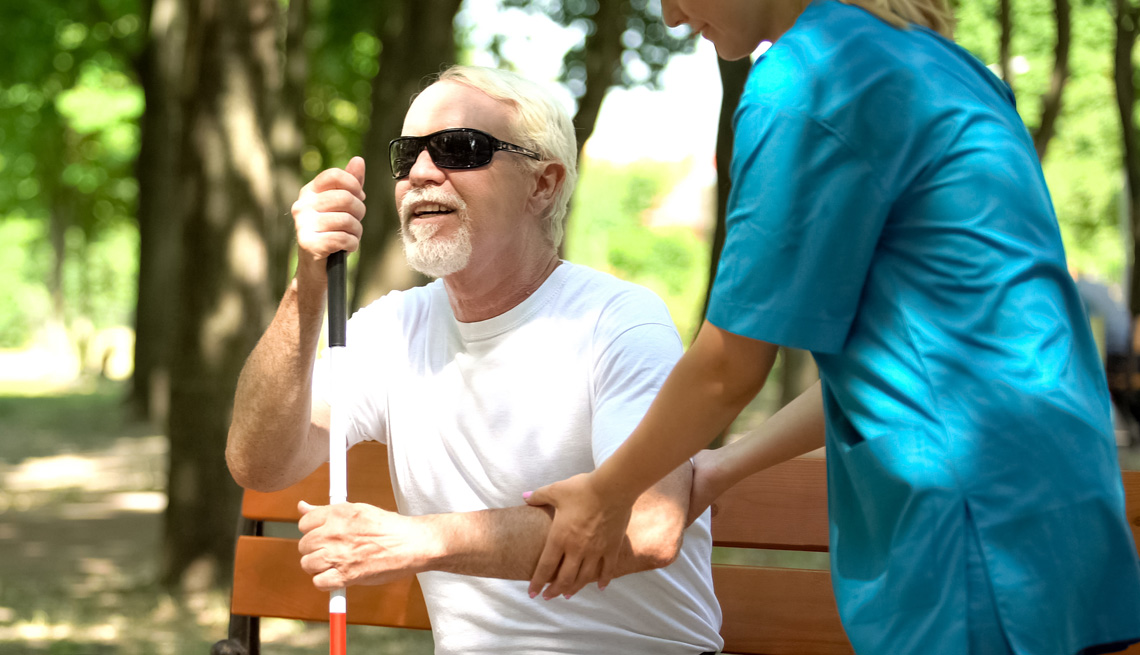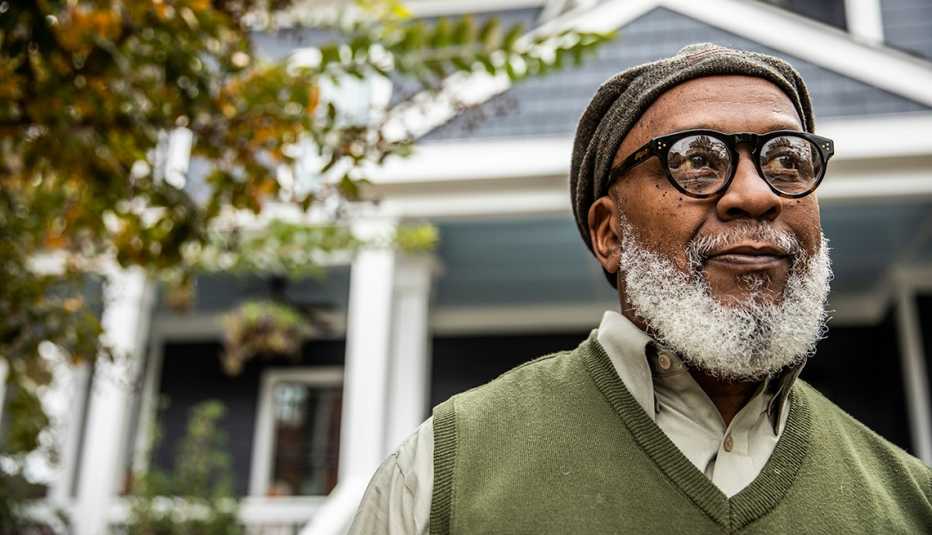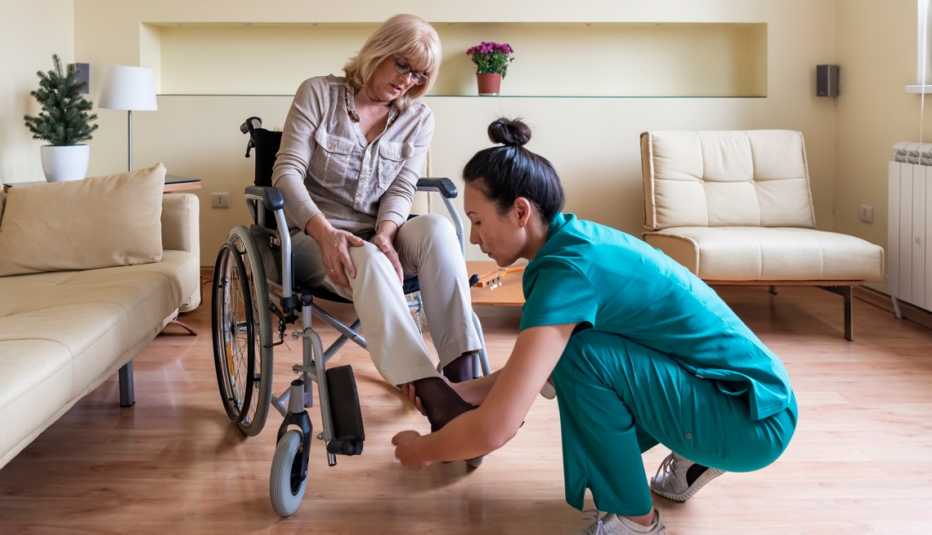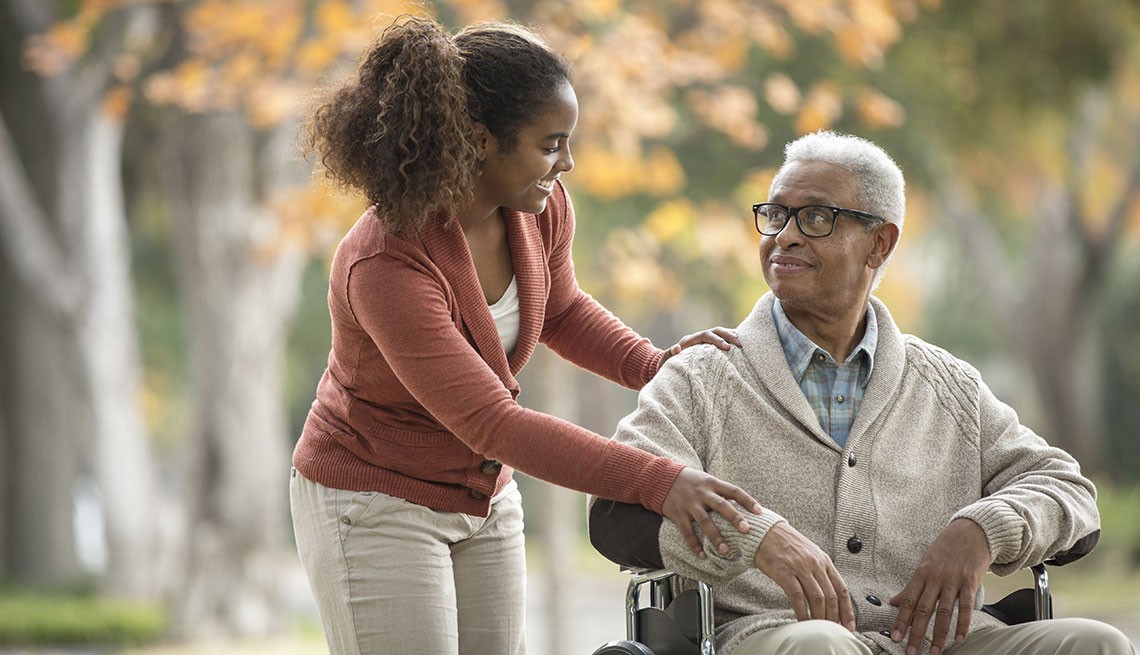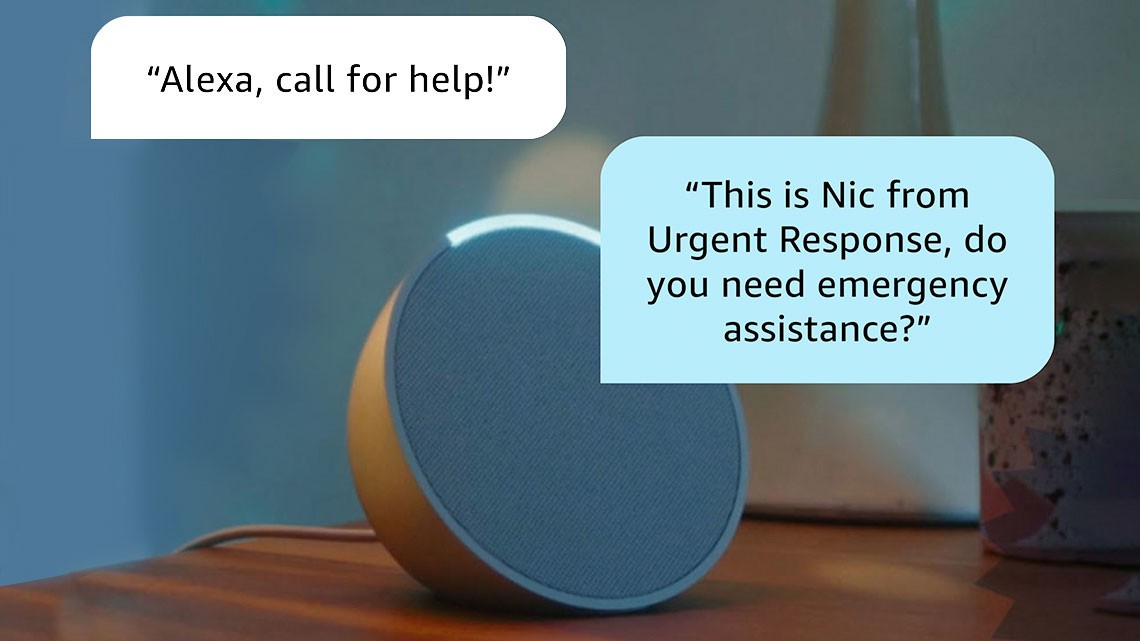Staying Fit
When Jim French and his sister were seeking an assisted living community for their mother, who has been deaf since early childhood, they considered one facility exclusively for deaf people. The problem: It was in Ohio, far from their mother’s family and friends in the Washington, D.C., area. Instead, they chose a place close to their mother’s former home, in Maryland.
The facility was eager to accommodate her, French says. Staffers installed lights that flash when someone rings her doorbell. They started monthly sign language classes for other residents. They promised to provide sign language interpreters for important meetings and medical appointments, but French says that hasn’t always happened.


AARP Membership— $12 for your first year when you sign up for Automatic Renewal
Get instant access to members-only products and hundreds of discounts, a free second membership, and a subscription to AARP the Magazine.
Still, he says, his mother, 79, who was showing signs of cognitive decline and poor nutrition before her move, has thrived: She eats lunch with friends, dates another resident and likes the staff. “She feels heard,” he says. “She feels respected.”
Not everyone fares so well when seeking long-term care for older loved ones with disabilities.
Though federal and state laws, including the Americans with Disabilities Act, say agencies and facilities cannot discriminate against people with disabilities — including hearing, vision, communication and mobility problems, as well as intellectual and developmental disabilities — finding a good fit can be “hit and miss,” says Priscilla Rogers, special adviser on aging and vision loss for the American Foundation for the Blind.
Factors ranging from poor staff training to underfunding to a lack of awareness on the part of care recipients, their families and care professionals can leave people poorly served, she and other advocates say.



























































